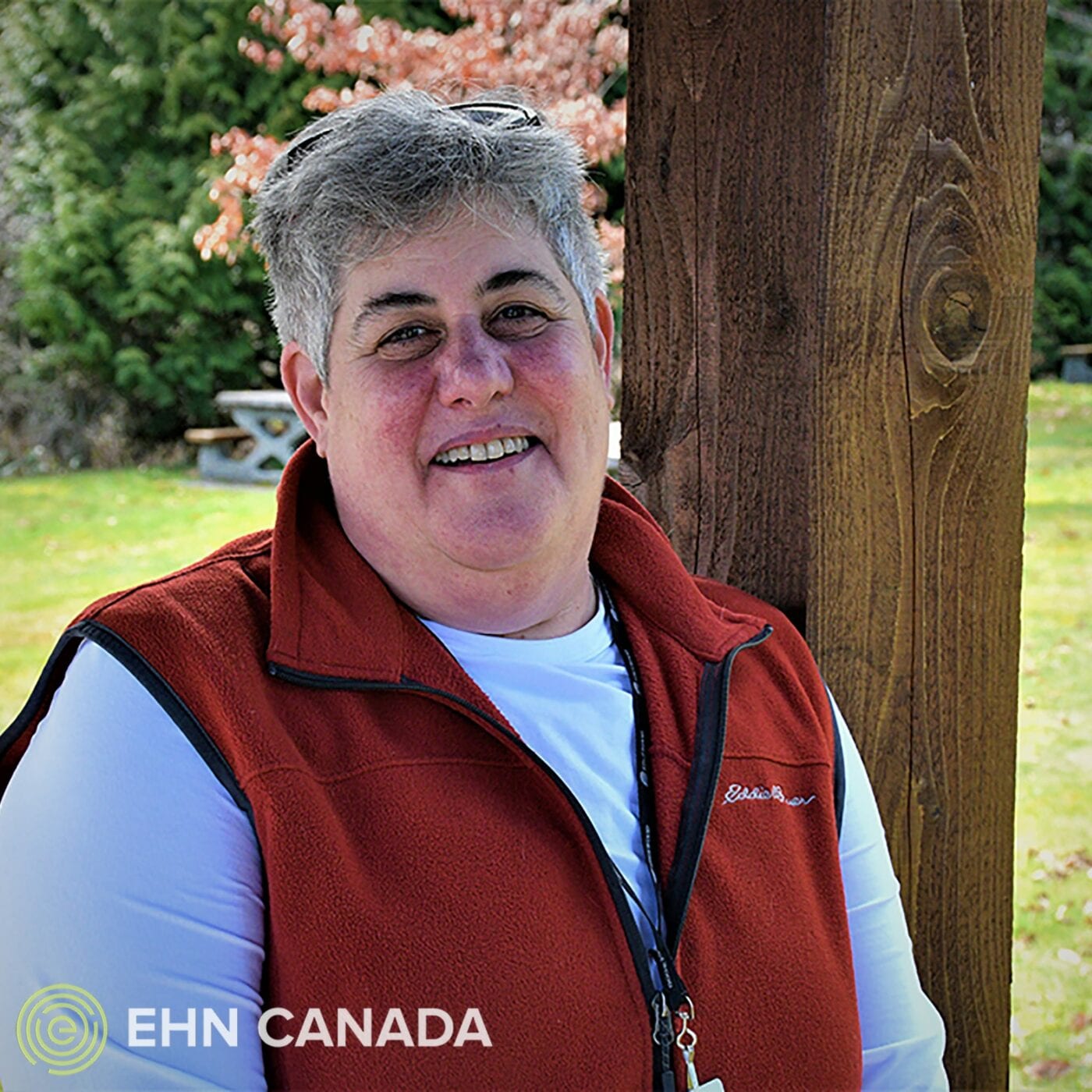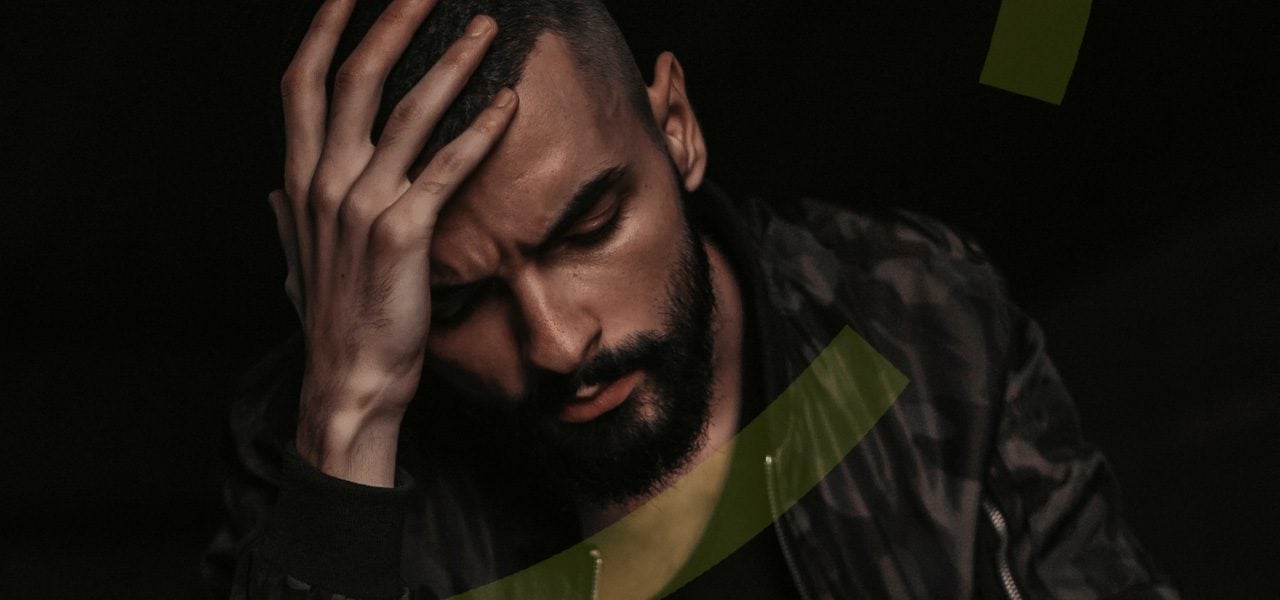Staff Interview by EHN Guest Writer
Written by Lorelie Rozzano, an internationally recognized author and advocate.
At 12 years old, EHN Canada counsellor Lauren Melzack had a big secret. Lauren discovered she was attracted to the girls in her class. Terrified that her friends and family would find out, Lauren drew inwards. It was the early seventies, and the world viewed being gay as sick and wrong. For many years Lauren kept her secret, living in a fantasy world where she spent most of her time alone, believing there was something wrong with her.
Socially shy and awkward, Lauren describes herself as depressed. She called herself fat and ugly and blamed her problems on overeating and being overweight. At the age of 15, Lauren thought she had found her solution when somebody handed her a joint. Lauren’s painful emotions and insecurities vanished. Smoking marijuana helped Lauren feel like she could survive and conquer her troubled world.
Lauren also discovered alcohol at 15, but she didn’t like the taste of it. However, it wasn’t the taste Lauren was after. Lauren wanted to be intoxicated. She recalls pinching her nose closed as she drank. Even after she came out at age 18, the heavy drinking and smoking continued.
When she was 23, Lauren realized drinking and drugging had become problematic. Lauren was smoking weed 24/7 and drinking heavily. Lauren sought help through psychiatry but he recognized her issues with drugs and alcohol and said he couldn’t help her until she got sober.
I didn’t know I could have fun without getting high
A lot of gay life is lived in the clubs. When Lauren entered treatment, she wondered how she would connect with others like herself. Without the clubs and the freedom she found in drugs and alcohol, Lauren thought her life would be dull and boring. But Lauren discovered gay and lesbian meetings, and she realized that fun didn’t just come in a drink or toke. Lauren was the outlet for fun.
Completing a 30-day treatment program and two years of aftercare, Lauren went to meetings and met people she felt completely comfortable with. Lauren dove headfirst into her recovery and thrived there. She got a job in corrections, as a prison guard and twelve-step meetings took the place of the clubs. Lauren went out to dinner, dances, and learned to bowl. Lauren says going to treatment and coming out, allowed her to learn how to love and accept herself. This also gave her a clear understanding that she wasn’t an addict because of her sexuality but now was equipped with the tools needed to address both issues in a healthier manner.
Sobriety gave Lauren the confidence to embrace all her dreams
Lauren completed an Associate degree in criminal justice, a Bachelor’s degree in management, and her Master’s degree in environmental science. Lauren also completed her Canadian Addiction Counsellors Certification Federation (CACCF).
In June of 2008, Lauren began working at EHN Canada’s Edgewood facility in Nanaimo. As a clinical counsellor, Lauren works closely with patients and their families. Recently, Lauren was promoted to Deputy Clinical Director and put in charge of EHN Canada’s new program for LGBTQ+ individuals. This program is designed to address specific needs and issues this minority population faces. It allows LGBTQ+ individuals to openly discuss gender and sexual identity complications and challenges that they’re not able to address in the general population.
As a lesbian with years of experience navigating the trouble waters of identity and self-acceptance, Lauren is an excellent candidate to head this program. Lauren says, if I had had one person in high school tell me I was okay, it might have made a big difference in my life. Instead, I hid my true self and numbed my shame and anxiety with food, drugs, and alcohol.
What people who aren’t LGBTQ+ don’t understand is the sheer terror you feel when you’re contemplating coming out
Lauren says if you identified as LGBTQ+ and struggle with addiction, it’s essential to find someone safe to talk with. You can call me. I’ve walked in your shoes, and I know the terror of being vulnerable and sharing something so incredibly intimate about yourself.
EHN Canada’s LGBTQ+ program is a specialized track for LGBTQ+ individuals who are seeking a safe, supportive environment with a treatment focus. It’s important to note, some people don’t identify sexual gender one way or another. Non-binary gender identity is neither exclusively male nor female. It’s okay not to be certain about your sexual/gender identity and to affirm yourself regardless. The program is about resources, acceptance, and love. We can make accommodations for everyone’s needs. EHN Canada recognizes although addiction is a predictable illness, we are all unique individuals with different challenges.
I spent so many years thinking there was something wrong with me
Reflecting on her 12-year-old self, Lauren says, if I could say one thing to myself or anyone else who struggles as I did, I would say this. Hang in there. It gets better. You are lovable. There is nothing wrong with you. Being gay is not a disease. Being gay is just who you are, and masking your pain with drugs and alcohol or other mood-altering behaviors is not your answer.
EHN Canada’s New LGBTQ+ Addiction & Mental Health Treatment Program
EHN Canada will be launching our new LGBTQ+ Addiction and Mental Health Treatment Program at our Edgewood facility in Nanaimo, BC. For more information, please call us at 1-800-683-0111 or visit our LGBTQ+ Program page.




